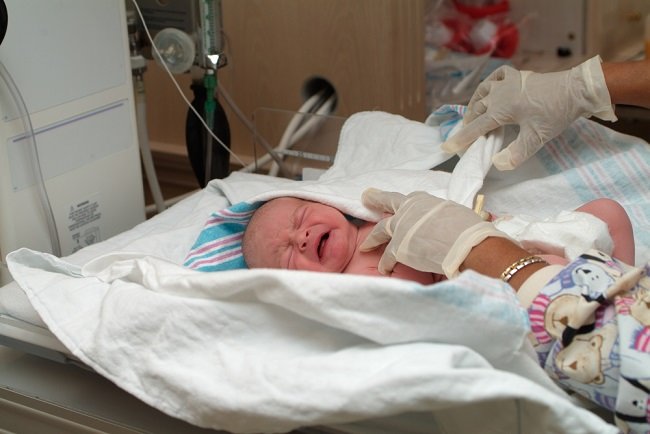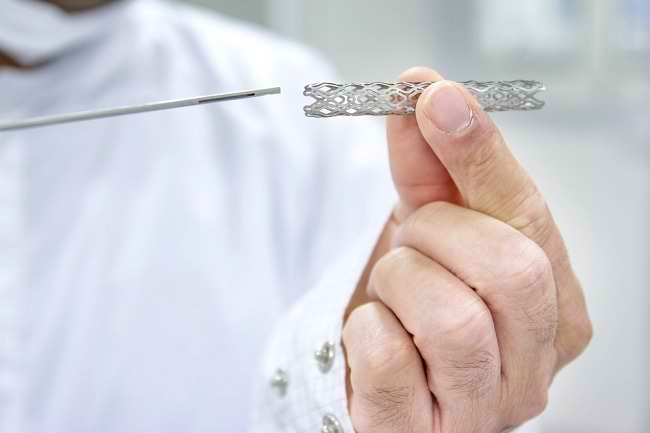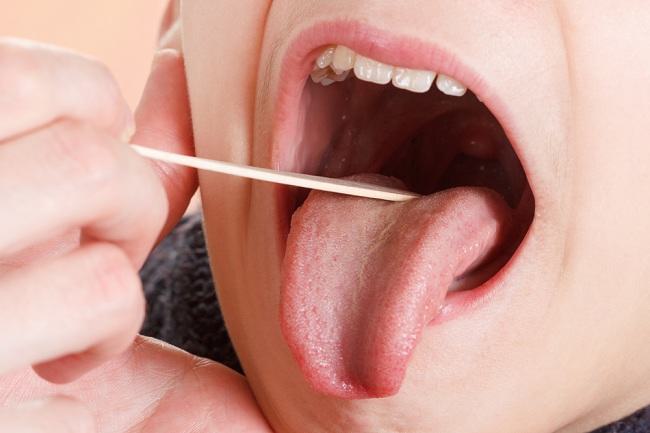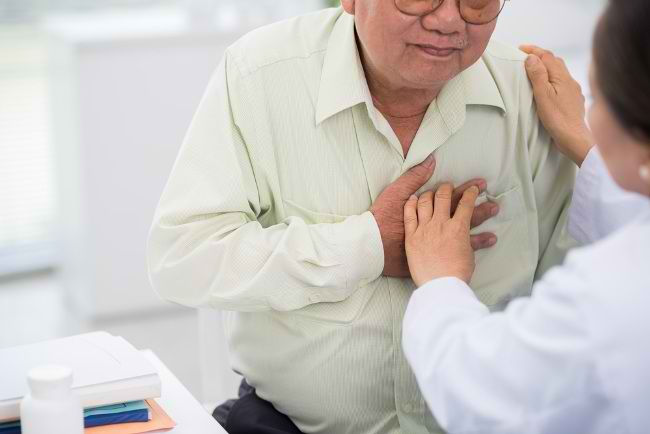Tuberous sclerosis is a benign tumor that grows in certain parts of the body, especially the brain. This condition is caused by a genetic disorder that can be passed from parents to children.
Tuberous sclerosis is a very rare disease. Symptoms of tuberous sclerosis vary, depending on where the tumor grows. However, this disease most often attacks the brain. In addition to the brain, benign tumors can also develop in the kidneys, heart, lungs, and skin.

Causes of Tuberous Sclerosis
Tuberous sclerosis is caused by changes or genetic mutations that control cell growth in the body. These changes cause uncontrolled cell growth and trigger the formation of tumors in various parts of the body. The presence of this tumor will affect the function of the affected organ.
This genetic mutation is passed from parents to their children. However, in some cases, there are new genetic mutations that are not inherited. This new mutation occurs randomly, with no known trigger.
Symptoms of Tuberous Sclerosis
Symptoms of tuberous sclerosis can be mild or severe, depending on the location of the tumor and its severity. Symptoms of this disease generally develop slowly, so that they are only seen when children start to grow or become adults. Here are some of the symptoms of tuberous sclerosis based on the organs affected:
Brain
- Behavioral disorders, such as irritability, hyperactive and aggressive behavior, emotional instability and irritability, and a tendency to withdraw from social circles.
- Impaired communication and interaction with the surrounding environment. The disorder can appear in the form of autism or ADHD.
- Impaired physical and intellectual development, such as impaired comprehension.
- seizures.
Kidney
Symptoms that can appear include nausea and vomiting, difficulty urinating, and swelling in the feet, legs, or hands due to fluid buildup. These symptoms appear when kidney function is impaired and has the potential to cause kidney failure.
Skin
Symptoms of tuberous sclerosis of the skin include thickening in several areas of the skin, the appearance of light-colored patches, growth of tissue under or around the nails, and the appearance of small pimple-like bumps on the face.
Heart
Disorders of the heart due to the influence of tuberous sclerosis can be characterized by chest pain, palpitations, shortness of breath, and blue-looking skin (cyanosis).
Lungs
Disorders of the lungs can cause coughing and shortness of breath, especially when doing strenuous activities or exercising.
Eye
Disorders of the eye are characterized by visual disturbances due to the appearance of white patches on the retina.
When to go to the doctor
Consult your obstetrician before planning to have children, if you or your partner have tuberous sclerosis, or have a family member with tuberous sclerosis. This is done because tuberous sclerosis can be inherited.
Symptoms of tuberous sclerosis in children can be detected from birth, but these symptoms can also appear during childhood or even as adults. If your child is showing the symptoms of tuberous sclerosis described above or you feel something is different about your child, contact the doctor immediately.
Diagnosis of Tuberous Sclerosis
To diagnose tuberous sclerosis, the doctor will ask the patient's symptoms and medical history in his family. Next, the doctor will perform a physical examination, including the eyes and skin, as well as an examination of nerve function.
Follow-up examinations are performed to detect the location of the tumor and confirm the diagnosis of tuberous sclerosis. The types of tests that can be done are:
- MRI, to get a more detailed picture of the condition of the brain or kidneys and detect the location of the tumor.
- Ultrasound and CT scan, to detect the presence of tumors growing in the kidneys, heart, or lungs.
- Cardiac echo, to detect abnormalities in the heart and check for tumor growth in the heart.
- Electroencephalography (EEG), to detect abnormalities in brain function.
Gene testing can also be used to diagnose tuberous sclerosis. However, this test is not always reliable because the process is complicated and takes a long time. Gene testing is usually done as a preventive measure against tuberous sclerosis.
Tuberous Sclerosis Treatment
Treatment of tuberous sclerosis will be adjusted to the location of the tumor and the symptoms that appear. This step aims to overcome the symptoms and can last for a relatively long time. Types of treatment that can be done are:
Drugs
The administration of drugs is adjusted to the condition experienced by the patient and is used to treat symptoms and complications that arise. Some of the drugs used are:
- Anticonvulsants or anticonvulsants, such as benzodiazepines and phenobarbital, to control seizures.
- Everolimus, to suppress the growth of tumors in the brain and kidneys that cannot be removed surgically.
- Sirolimus, to treat and suppress the growth of tumors on the skin.
Operation
Surgery is performed to remove tumors that affect the function of certain organs, such as the kidneys or heart. Surgery is also performed to control seizures caused by brain tumors and cannot be treated with drugs.
If the tumor is in the kidney, the surgical procedure is performed by cutting off or blocking the blood flow that supplies blood to the tumor.
Physiotherapy
Other supportive therapies, such as physiotherapy, occupational therapy, or speech therapy, can be used to help people with tuberous sclerosis of the brain. This therapy aims to improve the child's ability to perform daily activities.
There is no effective drug to treat tuberous sclerosis. Therefore, the doctor will perform regular organ function checks to monitor tumor growth and control the symptoms that arise.
Complications of Tuberous Sclerosis
Everyone with tuberous sclerosis is at high risk for complications. The types of complications that can occur depend on the location and size of the tumor. Some of the complications that can occur are:
- hydrocephalusTumors that appear in the brain can cause a buildup of cerebrospinal fluid in the brain cavity (hydrocephalus), so that pressure on the brain increases and the size of the head increases.
- Kidney failureThis condition occurs when a tumor that develops in the kidney gets bigger and causes bleeding, leading to kidney failure.
- Heart diseaseTumor growth in the heart can cause obstruction of blood flow to and from the heart, as well as arrhythmias.
- Lung function disordersTumors that develop in the lungs can cause a buildup of fluid in the lungs and lead to impaired lung function.
- CancerBenign tumors that grow in the body of patients with tuberous sclerosis are at high risk of developing into cancer.
- BlindnessTumor growth in the eye can inhibit the function of the retina, thereby impairing vision and causing blindness. However, these complications are rare.
Prevention of Tuberous Sclerosis
There are no known ways to prevent tuberous sclerosis. However, if you or your partner has a family history of tuberous sclerosis and are planning to have children, you are advised to have a gene consultation and examination. This action is taken to detect the risk of tuberous sclerosis early on so that it can be anticipated.









